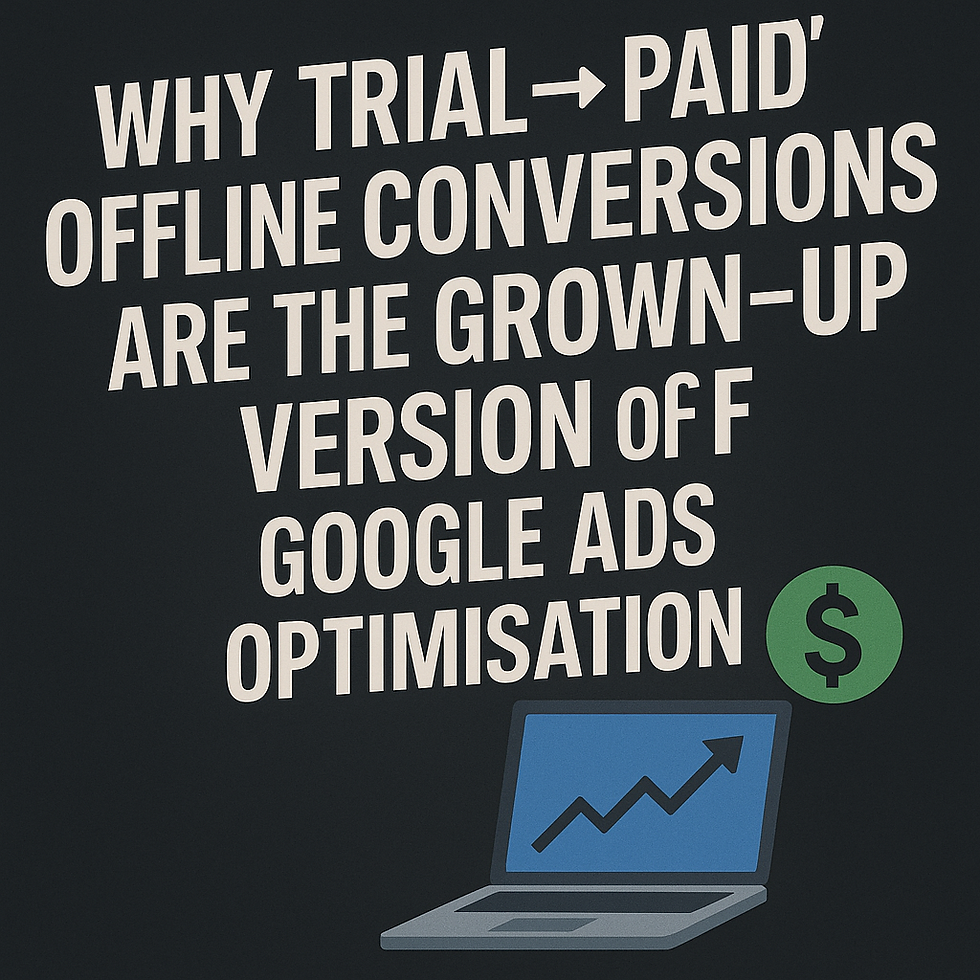🧠 The Search Singularity Is Coming
- Veronika Höller
- 11. Sept. 2025
- 4 Min. Lesezeit
Why Google, ChatGPT & TikTok Now Compete for Intent – and How Your Content Has to Fragment to Survive
Welcome to the year where search starts on TikTok, ends in ChatGPT, and skips Google entirely. If your SEO strategy still revolves around “ranking on page one,” you’re already behind.
What Is the Search Singularity?
Let’s define it:
The Search Singularity is the point where traditional search engines, AI models, and social platforms converge into one user-centric intent resolver. It’s no longer about where people search – it’s about how fast their intent gets satisfied across tools.
In 2026, Google isn’t the only answer machine anymore. Now it’s competing against:
ChatGPT & Gemini (AI intent interpreters)
TikTok, Instagram, Reddit (social discovery engines)
Perplexity, You.com, Brave Search (answer-first tools)
Bing Copilot & Meta AI (contextual assistants in your apps)
This isn’t just a platform war.It’s an intent war – and your content is caught in the crossfire.
📱 The New Intent Landscape: From Query to Context
In the old days, search looked like this:User → Google → 10 blue links → Click → Done.
Now it looks like this:
User scrolls TikTok ➝ gets curious
→ asks ChatGPT ➝ gets overview
→ searches Google ➝ gets brand result
→ finishes on Reddit thread
That entire journey might take 5 minutes — or 5 tabs — and happen across multiple platforms.
And here's the kicker:👉 Each of those steps has different intent, expectations, and trust levels.
The Fragmentation Problem: One Page ≠ One Answer
Most brands still create content for a single query in a single channel. But in 2026, that’s a guaranteed fail.
Why?
Because the same topic now needs to be interpreted and answered differently across 5+ intent layers:
Platform | User Expectation | Format Needed |
Google Search | Precise, authoritative info | Long-form, EEAT-rich |
ChatGPT | Summary + Next steps | Structured data, clarity |
TikTok / Insta | Hook → Hack → Hashtag | Video, voiceover, trend |
Reddit / Threads | Humanized, experiential | Case studies, quotes |
Professional POV, leadership | Opinion, framework, value |
If you only publish a blog post → you're invisible in 4 out of 5.
2026 Rule: You Don’t Create “Content” – You Create Answer Nodes
Think in fragments. Not formats.
Your blog post isn’t an article. It’s the structured root from which: your AI answer snippet, your TikTok explainer, your Reddit comment, your Gemini data bubble, and your LinkedIn POVare all derived.
Your goal?Build a multi-touch search experience, not just a ranking page.

🔄 How AI Tools Reshape Search Intent
Tools like ChatGPT, Gemini, Claude now act as:
Intent translators: They rewrite vague queries into structured ones
Answer prioritizers: They decide what’s shown first (your content or someone else’s)
Satisfaction detectors: They track whether users come back for clarification
If your content isn’t:
Structured clearly
Referenced in high-authority domains
Internally cohesive
Rich in schema and linked FAQs
…you’re likely excluded from the response bubble.
And when AI becomes the first answer – you don’t even get a click.
Real-World Example: Same Intent, 4 Journeys
Let’s say the intent is:“How to store legal documents securely”
Google:➝ Searches “GDPR-compliant cloud storage”➝ Sees your page ranked #4➝ Clicks… maybe.
ChatGPT:➝ Asks “Best way to store legal documents online securely in Europe”➝ Sees a summary – your brand is not even mentioned.
TikTok:➝ Sees a lawyer explaining why Dropbox isn’t safe➝ Gets convinced in 15 seconds
Reddit:➝ Reads a thread: “Anyone using Tresorit vs OneDrive for legal files?”➝ Gets real feedback, links, screenshots
Same intent. Four different platforms. Four different trust triggers.
What This Means for SEO in 2026
Let’s be blunt:If you’re only optimizing for Google SERPs, you’re playing on 20% of the field.
Here’s what you should be doing:
✅ 1. Build a Fragmented Content Engine
One core topic = 5 outputs (Blog, AI Prompt Format, Video Hook, Visual Summary, Community Snippet)
Think like a multi-channel media company, not a one-page publisher
✅ 2. Measure Beyond Clicks
Use tools that track mentions in ChatGPT, Gemini, Perplexity
Track AI snippet inclusion (RAG-ready content)
Follow social search queries (TikTok autocomplete, Reddit thread rank, etc.)
✅ 3. Create “Intent Cluster” Pages
Not just topic clusters – intent clusters
For example:"E2E encryption for legal docs""How lawyers share documents online""Why Dropbox isn’t GDPR-compliant"
Each answers a different stage of the user’s journey – in the right tone for the right channel
✅ 4. Schema. Schema. Schema.
Use FAQPage, HowTo, QAPage, VideoObject
Structured data makes your content machine-readable for LLMs
Especially useful for AI tools pulling context instead of snippets
✅ 5. Track Your Visibility in the New Ecosystem
Your new metrics:
Metric | Old SEO? | Future-Proof? | |
Organic CTR | ✅ | ⚠️ | |
Featured snippet appearance | ✅ | ⚠️ | |
AI Tool inclusion | ❌ | ✅✅✅ | |
Social search discoverability | ❌ | ✅✅✅ | |
Reddit/Quora authority mentions | ❌ | ✅✅✅ |
🧨 Final Thoughts: Search ≠ Google Anymore
Search is now everywhere.And your job as a digital marketer, SEO, or content strategist is no longer to “rank.”
Your job is to fragment your knowledge across ecosystems – and still stay coherent.
The brands that win in 2026 are those that understand:
✅ Intent travels across platforms
✅ Attention doesn’t start in search bars
✅ And AI tools decide what’s seen – before anyone clicks
TL;DR
The Search Singularity is real. And your survival depends on one thing:
👉 Stop chasing keywords.Start meeting intent – wherever it happens. You want to know more? Buy my new Book The Search Singularity: Winning the New Game of Search



Kommentare